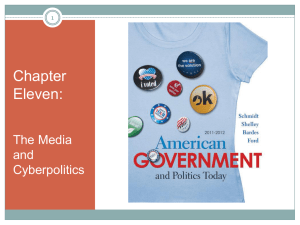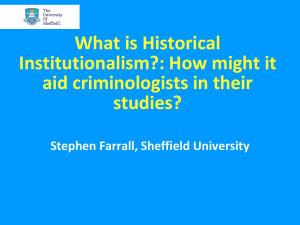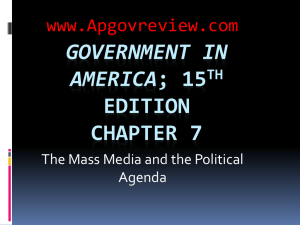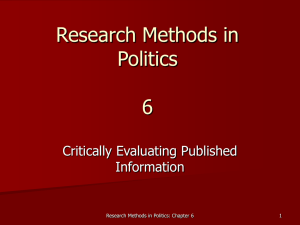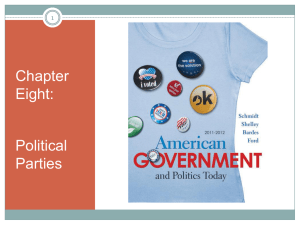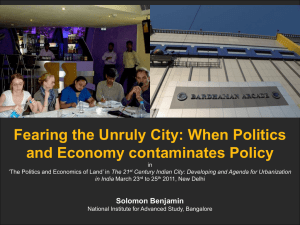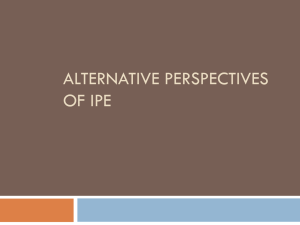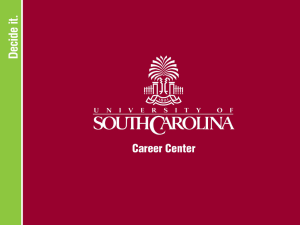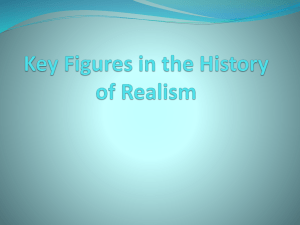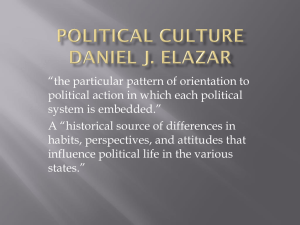International Politics on the World Stage
advertisement
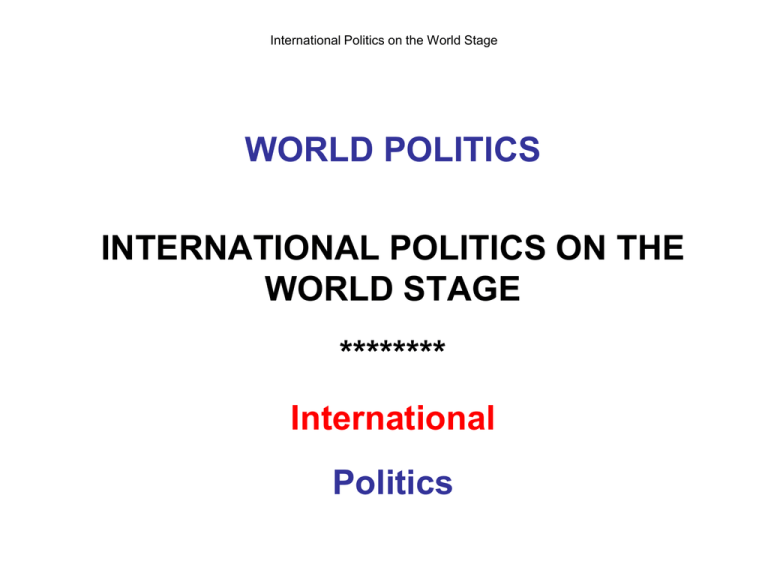
International Politics on the World Stage WORLD POLITICS INTERNATIONAL POLITICS ON THE WORLD STAGE ******** International Politics International Politics on the World Stage The Evolving World system: 3) 1) The world is more than just the sum of its parts 2) World politics is more than just the sum of the individual interactions among the parts There are general patterns of interactions among the parts (the system´s actors) International Politics on the World Stage Greece and Rome ”From tribal communities to city-states and empires” Ethnicity - Religion - Territory Sovereignty ….. ”Politics” (Aristotle) = a system of government based on law International Politics on the World Stage Local authority in the Middle Ages Feudalism Decline of the feudal system: Advances in military technology ; Economic expansion – improved trade Overarching authority in the Middle Ages Religious Secular Decline of universalistic authority: Effects of the Renaissance period + the Protestant Reformation + the Treaty of Westphalia (the State = dominant actor) International Politics on the World Stage INDUSTRIAL REVOLUTION IMPERIALISM A MULTIPOLAR INTERNATIONAL SYSTEM BALANCE OF POWER International Politics on the World Stage Growing tensions in the multi-polar/multiethnic system *NATIONALISM *WARS AND THEIR EFFECTS The Cold War and the Bi-Polar System After the Cold War = One Hegemon or …? International Politics on the World Stage Global Economics and Security in the 21st Century • Economic interdependence/disparities • Human Rights • The Environment • Military Technology (WoM) International Politics on the World Stage REALISM and LIBERALISM Two Theories of International Relations *Human nature *Main cause of Conflict *Conflict in IR *Analytical focus *Role of states Realist Pessimist Aggressive human nature + failure of great states to use their power wisely Inevitable States (leaders) Core/Nat interests Liberal Optimist National greed + insecurity due to anarchy + few restraints on power Not inevitable States + Int Org + Int Norms Central but will diminish in favor of Int Org International Politics on the World Stage Realist *Policy prescriptions Pursue self interest Expand power *Key concepts Power, self-interest, anarchy, BoP *Morality State and indiv morality not the same State obliged to guarrantee safety and wellfare of its citizens *Means to achieve Promote power of Goals own state Liberal Create norms of justice and peace, promote dem Cooperation, int norms, peace, justice, democracy State and indiv morality the same Create int norms, build Int Orgs, provide justice and econ dev for all International Politics on the World Stage Three Levels of Analysis 1) Systems level 2) State level 3) Individual level ********************* Vertical and Horizontal Authority Structures International Politics on the World Stage The Actors • States • Intergovernmental Organizations • Transnational Organizations • Corporations active in the World Market • Transnational Corporations International Politics on the World Stage Factors which affect ”Actor Power” • Territory • Population (size, homogeneity,…) • Political stability • Economic resources • Natural resources • Military resources • Technological level/Industrial capacity • Level of citizens´ living standard • External actors, Membership in Alliances • ……. International Politics on the World Stage State authority challenged by: • Internal opposition - minority groups (alternative governance) - organized econ/pol interests - guerilla/terrorist groups • External actors - ”Big powers” - Alliances - International organizations (int law) - Popular movements (HR, Environ) International Politics on the World Stage State Foreign Policy Goals • Security • Economy/Living standard • Ideology ****************** International/transnational organization goals Company goals International Politics on the World Stage Foreign policy means • Diplomacy – Negotiations • Military • Economic • Psychological International Politics on the World Stage Restricting factors • International law (Courts/Tribunals) • International agreements • Alliances • Effective channels for world-wide communication/negotiation • Increased transnationalization • Democratic governance • Extended resources for conflict prevention and conflict management


